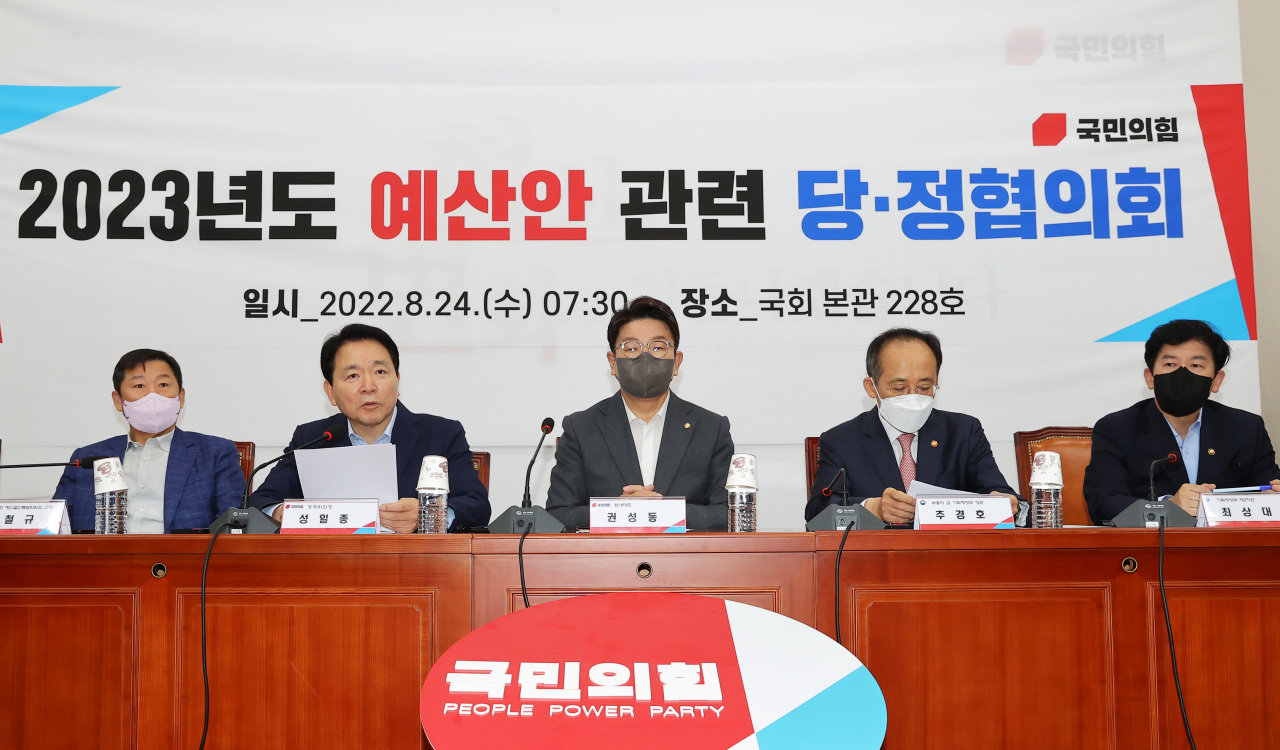 |
id Rep. Sung Il-jong, the People Power Party’s policy chief, speaks at a meeting held at the National Assembly on Wednesday. (Yonhap) |
The government and ruling People Power Party will push to introduce a new subsidy for job seekers and increase support for low-income groups in next year’s budget, the ruling party said Wednesday.
The ruling party and the government also agreed to include budget for planning storm drains in urban areas in light of recent rains, to direct more funds into supporting disabled people.
The budget plans agreed on by the party and government will be put to a Cabinet meeting and then to the National Assembly’s review on Sept. 2.
Under the plans the two side agreed on, next year’s budget will include funds for a subsidy worth 3 million won ($2,240) for young people who have given up on finding employment -- if they receive training in a program for job seekers.
“Receiving training in programs for job seekers operated by conglomerates such as Samsung and SK increases hiring rate, so the party requested (the government) for a large increase (of related budget),” said Rep. Sung Il-jong, the People Power Party’s policy chief.
On support for disabled people, Sung said the government accepted the party’s request to increase the subsidy for small companies that hire disabled people.
At present, companies with fewer than 50 employees receive a subsidy ranging from 300,000 won to 800,000 won per month for having a disabled person on the payroll for more than six months, for a maximum of 12 months.
According to Sung, the party requested increases of about 20 percent for the minimum subsidy and 10 percent for the maximum.
The government and the party also agreed to review increasing the value of energy vouchers by 50 percent, as part of measures for easing the burden of high inflation on low-income households.
Energy vouchers are given to low-income households receiving state medical, housing, education or basic living subsidies in the form of discounts on utility bills or funds.
For this year, energy vouchers range from 137,200 won a year for one-person households to 347,000 won for households of four or more people.
In addition, the ruling party and government agreed to push forward with plans to use state funds to help with debt of the self-employed and small merchants. The controversial plans will see the government budget reducing debts held by small merchants and self-employed people. The government has not released details of the plans.
By Im Eun-byel (
silverstar@heraldcorp.com)








